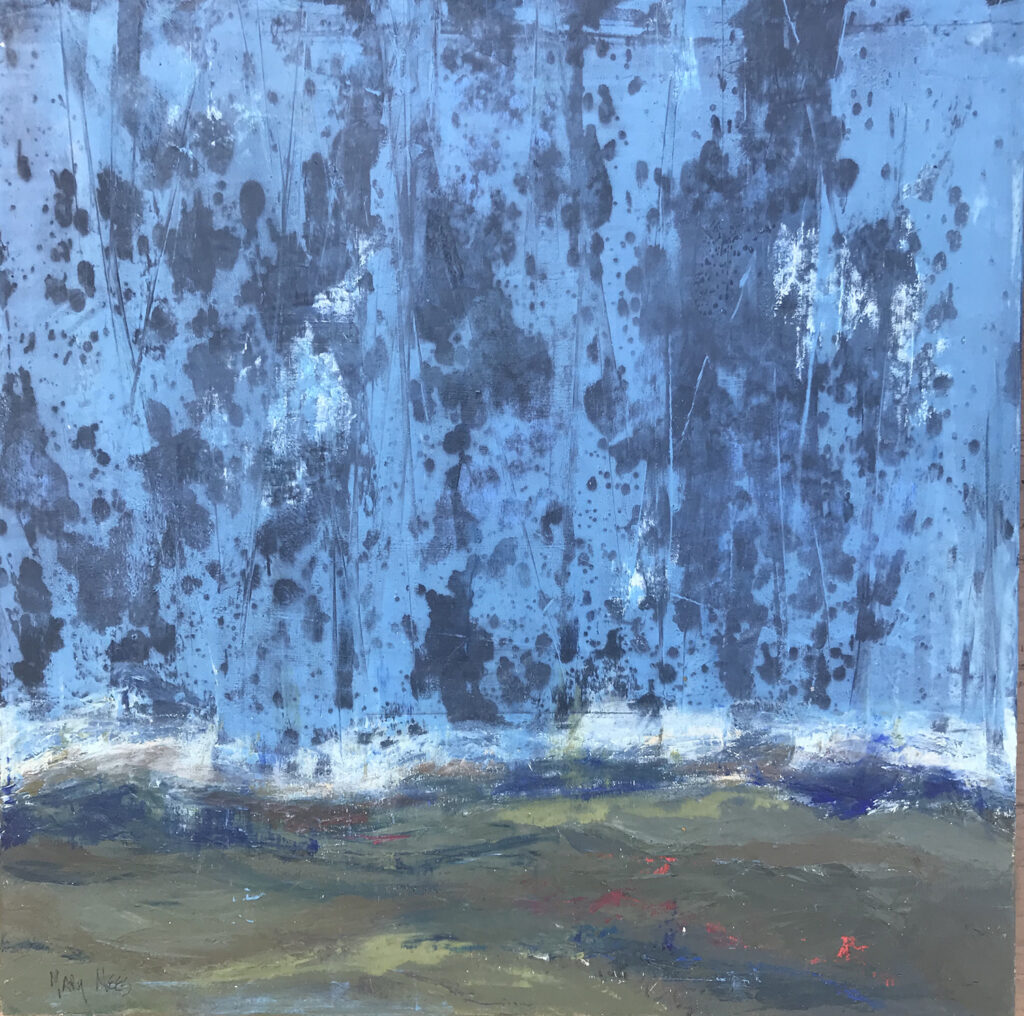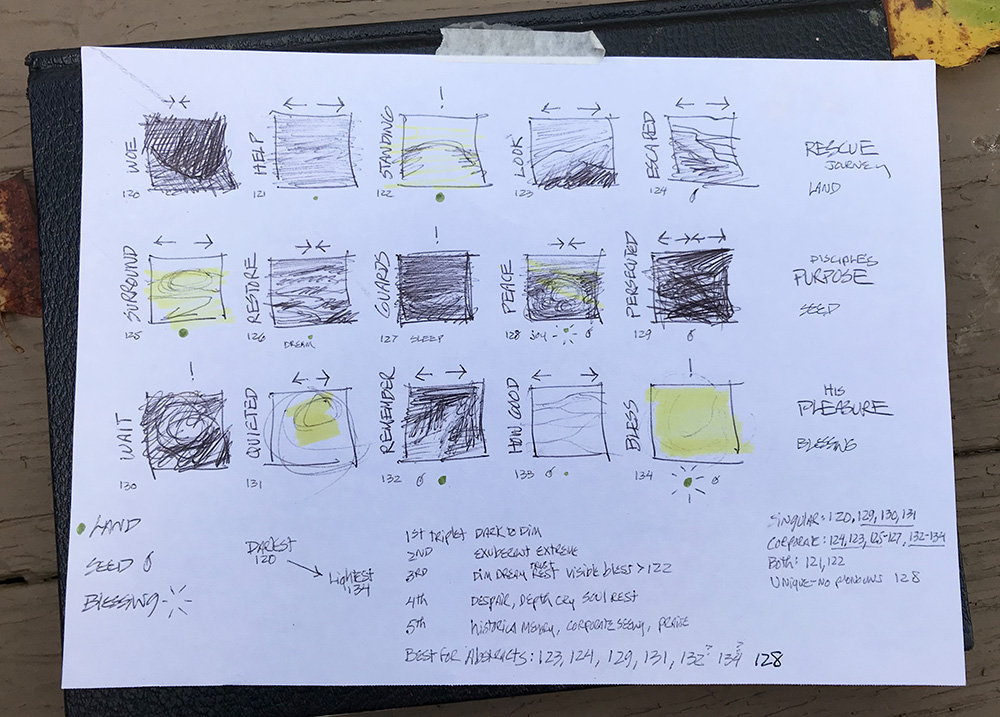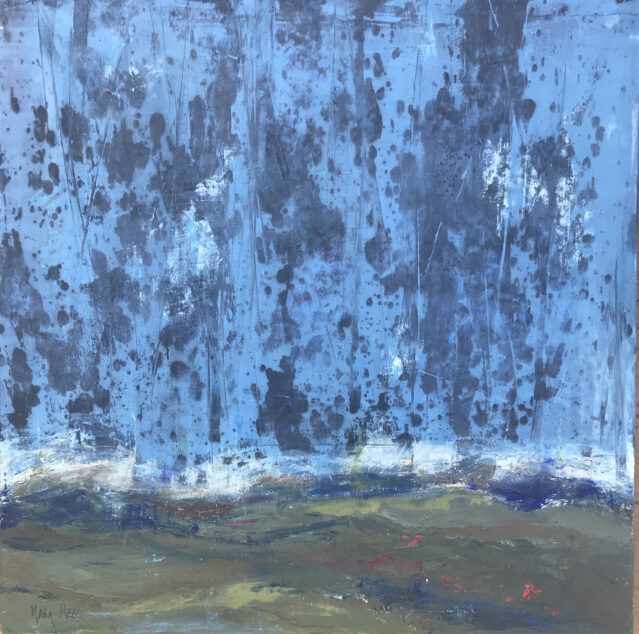In the middle of this triplet, Psalms 126-128, in fact right in the exact center of the entire set of 15 Ascent Psalms we’ve been tracking through, is a very surprising removal of sorts. God prompts the Psalmist on this journey to ‘give it a rest’ !
A song of ascents; by Solomon.

127 If the Lord does not build a house,
then those who build it work in vain.
If the Lord does not guard a city,
then the watchman stands guard in vain.
2 It is vain for you to rise early, come home late,
and work so hard for your food.
Yes, he provides for those whom he loves even when they sleep.
3 Yes, sons are a gift from the Lord;
the fruit of the womb is a reward.
4 Sons born during one’s youth
are like arrows in a warrior’s hand.
5 How blessed is the man who fills his quiver with them.
They will not be put to shame when they confront enemies at the city gate.
Psalm 127 is the only contribution Solomon makes to this complied set of 15 Psalms. Why his voice inserted here, why these particular words, and why now?
The collections placed into this entire last set of Psalms were added into the Psalter some 500 years after Solomon’s time. A Psalm from Solomon’s voice is particularly really here, for God had long before said to Solomon’s father “a son shall be born to you, who shall be a man of rest…his name shall be Solomon, and I will give peace and quiet to Israel in his days.”(1 Chronicles 22:9) So, before this Psalm recorder was born, and long after he had written these words, he was known as a man of rest. His name means the very same.
Add to this, that in the broader picture of this set of 15 Psalms we’ve already seen a pattern in each triplet, a meter of sorts 1. Distress, 2. Reliance and 3. Resolve. The distress we saw in the previous Psalm: “the dream” for a restoration from captivity. Solomon’s words are selected here for the reliance statement.
So then, how is his removal (my term) or his rest accomplishing anything having to do with the problem just spoken in Ps.126?
The young King Solomon, in Israel’s earlier history had been tasked with an immense project to lead the grand construction for what would be called Solomon’s Temple in Jerusalem. The history of his reign shows he was a very active leader. And so all the more poignant it is that this unique King, appointed to build, is the one who tells us that his work would be completely vain (a word he uses a lot in Ecclesiastes) apart from God being the builder, the watchman and the legacy giver. How does rest having anything to do with being a necessary builder?
And here is a broader highlight to his key idea that “He gives to His beloved even in his sleep” (vs.2b NASV). God does His very best work when we who’ve been diligently active are put to rest. And there’s a pattern here, for consider that when Eve was constructed, Adam was first put to sleep. Or when the grandest covenant was made with Abraham, that Abraham was put to sleep so that God alone would make and thereby fully guarantee the finish of everything He was promising there.
And so, when you put your head on your pillow, rest in real expectancy, for God gets His best work done when we are willing to give our dreams a trusting rest.
We’re on a journey in these 15 Psalms of Ascent, we’ve even seen a rest stop already. But here in the middle of the entire collection is a call, from the grandest builder to place our full reliance in the only One who builds the greatest things, even the children he gives to young parents. They will become rewards yet to see. And in the resolution of our grandest dreams, we will realize long beyond this trek is over, that He meant what he said “I will give you rest.” For active people on an active journey now, honoring His ability in our days is an act of faith.

When I display this collection of 15, they will be hung together like a table with each of three rows holding 5 Psalms. Here is a sketch of my plan and note that this Psalm 127 is exactly in the middle.
